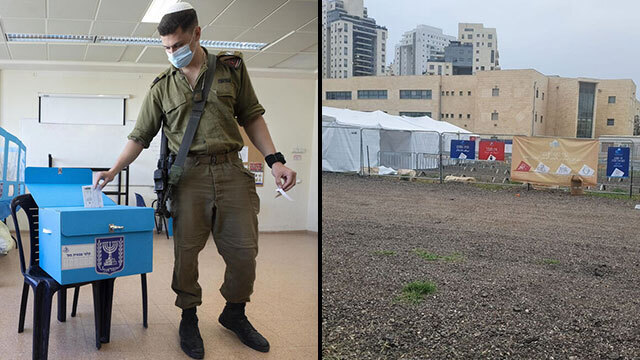
Preparations for Election Day have been completed: For the fourth time in two years, millions of citizens in the State of Israel will go out tomorrow (Tuesday) to exercise their right and elect their representatives to the 24th Knesset. In recent days, preparations have been completed in the Central Election Commission, the police, the IPS, the IDF and the hospitals.
9 View the gallery
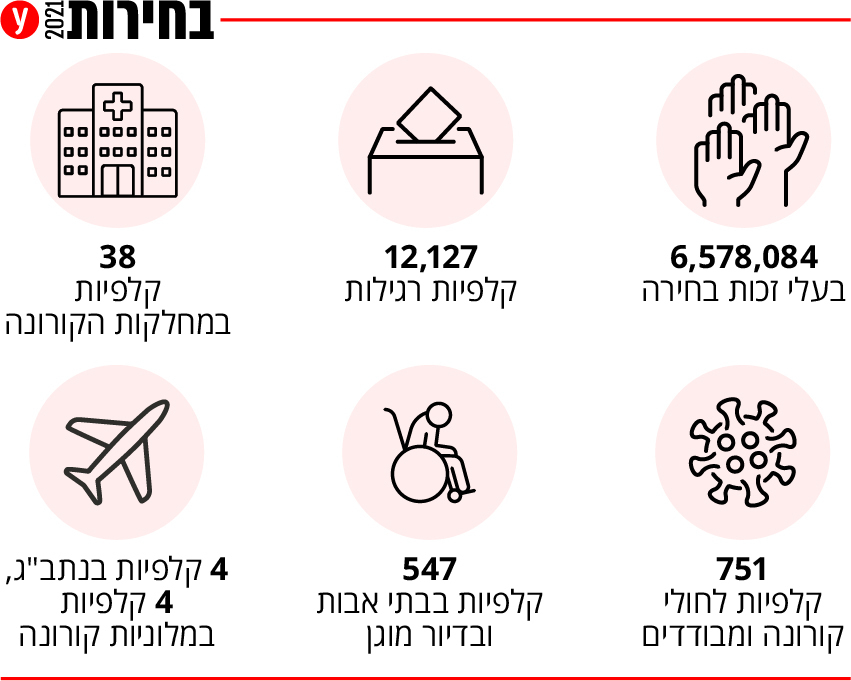

9 View the gallery
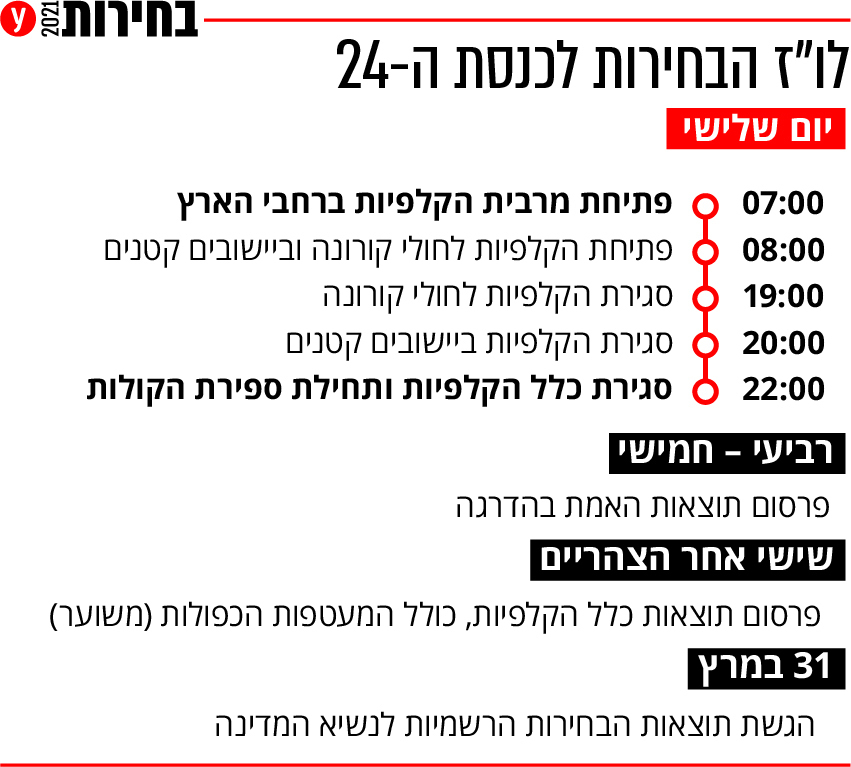

Corona patients are barred from reaching the designated polling stations independently, and must register for shuttles specially organized by the Central Election Commission. The shuttle can be booked on the company’s website (select “Order verified shuttle to the polls on Election Day”).
Isolated Israelis will be able to reach the designated polling stations with their vehicles, and not by public transport. Those who do not own a car will be able to book a private shuttle free of charge, in accordance with the outline formulated by the Central Election Commission with the taxi company “Get”. Taxi booking is through the special website set up for this purpose.
The Central Election Commission’s command and control center, which was established in the Knesset, will receive regular reports throughout the day from the polling stations, the regional committees, public inquiries, turnout and other exceptional events. Every few hours, the committee will inform the public and the media of the percentage of votes as of that time.
With the closing of the polls, and in parallel with the publication of the samples in the various media, the members of the committee in the thousands of regular polling stations will begin counting the votes of the truth. Those who vote at polling stations designated for corona patients, isolated, in nursing homes, hospitals, prisons, military and accessible polling stations – will do so in a double envelope.
9 View the gallery
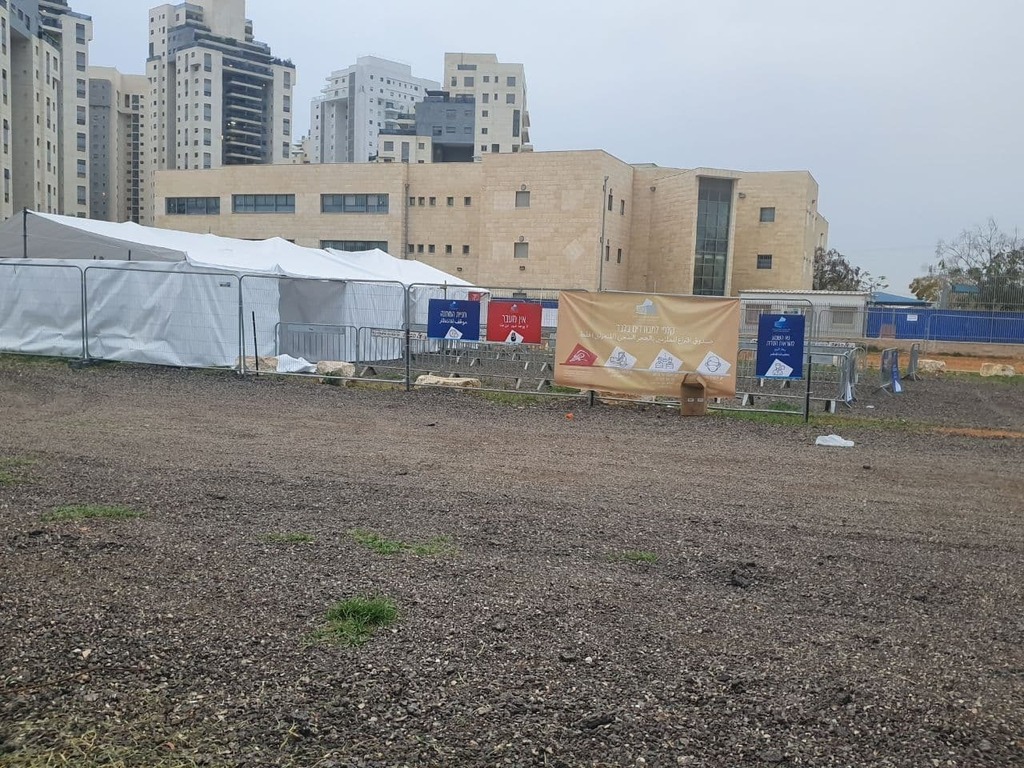

Establishment of ballots for the isolated, today in Petah Tikva
(Photo: Yaron Druckman)
All duplicate envelopes will be retained, and only after the counting of votes from the regular ballot boxes is completed will the Central Election Commission begin counting the envelopes.
During Wednesday, and perhaps even Thursday, the election results are expected to be published at the regular polls, while the full results, which include the double envelopes, are expected to be published no earlier than Friday afternoon.
In light of the difficulties in holding the election under the conditions of the Corona, the Central Election Commission has decided to place an election purity inspector at each of the polling stations across the country. The committee plans to place about 15,000 inspectors at the various polling stations. By comparison, in the previous election, 4,000 election purity inspectors were deployed. In addition, the vote-counting complexes and their typing are inherited on cameras to prevent harm to the purity of the election.
In 99 Israeli missions around the world, 103 polling stations have already voted and they arrived in Israel. In the last day, there has been a real drama in the Foreign Ministry due to fears that the last two polling stations – the one from Baku, the capital of Azerbaijan and the other Mingon, the capital of Myanmar – will not arrive in time and will not be counted. Foreign Minister Gabi Ashkenazi accompanied the operation tonight to ensure their arrival and they landed in Israel at noon. The polling stations of the Israeli missions abroad will be counted together with the double envelopes.
In the IDF, voting began last week and 28% of the servants have already exercised their right to vote. Tomorrow, 445 military polling stations will be set up, about 100 of them mobile. 00 in the morning and until 20:00 in the evening.
9 View the gallery
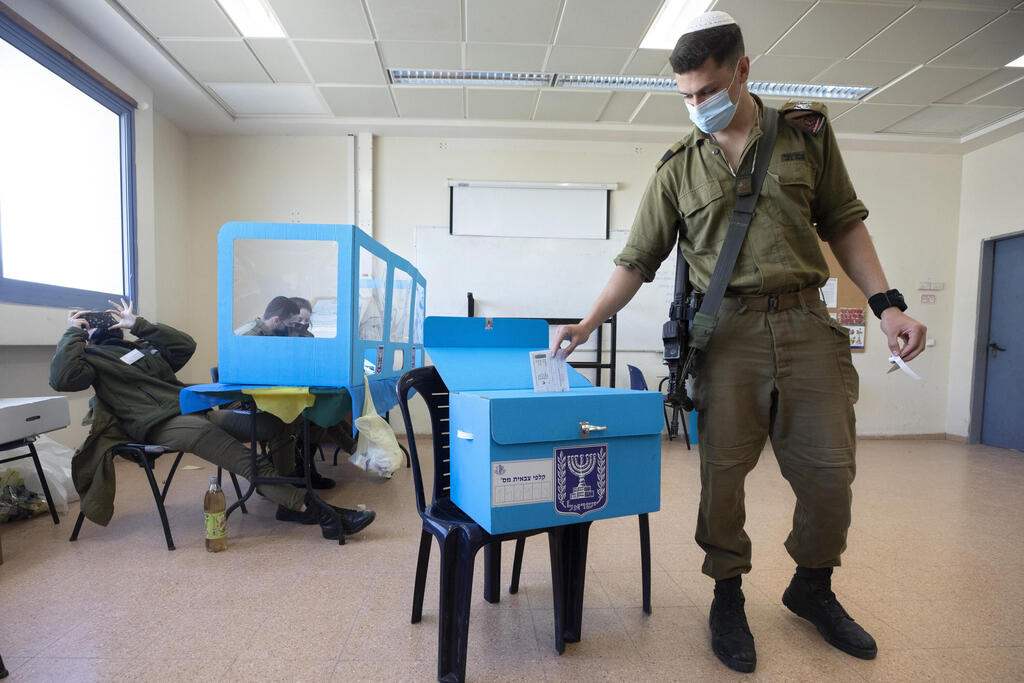

Voting in the IDF
(Photo: AP)
Tomorrow there will be a recruitment for the Givati Brigade and the Armored Corps. Recruits will vote at the end of the conscription chain using four ballots in order to maintain the guidelines, and will then be dispersed to the training bases.
The highest number of polling stations – at the Tel Hashomer, Tzrifin, Rabin Camp (HaKriya), Kiryat HaHadracha (City of the Baha’i) and Glilot bases. In addition, about 6,700 lone soldiers and eligible for family payments will serve as paid corona ushers at civilian polling stations across the country.
About 20,000 police officers are expected to participate in police activities on Election Day for the 24th Knesset. They are expected to be deployed at thousands of polling stations in order to maintain public order and the purity of the election.
Police are conducting police preparations for the elections
(Photo: Police Spokeswoman)
Fifteen special teams, including undercover and overt police officers, are expected to monitor polling stations where unusual incidents have been recorded in the past. The police did not say which polling stations they were, but noted that there are about 400 of them in the country. The purpose of the teams will be, among other things, to detect offenses of chastity, forgery and impersonation.
At the same time, about 3,500 police officers equipped with body cameras are expected to walk around the thousands of polling stations around the country. They will be banned from photographing inside the polling station but only in its vicinity, and some will be equipped with tablets in favor of random tests.
The police are also expected to be deployed on roads throughout the country and in places of entertainment, in order to maintain public order and address hundreds of thousands of Israelis who are expected to take advantage of the Sabbath and visit the entertainment sites, parks, bathing beaches, hiking sites and roads.
Hospitals around the country are preparing for the 24th Knesset elections in their area. Alongside the traditional polling station set up for workers and inpatients, special polling stations will also be set up for patients in the corona wards. According to data from the Ministry of Health as of this morning (Monday), 810 people are currently hospitalized in the corona wards.
9 View the gallery
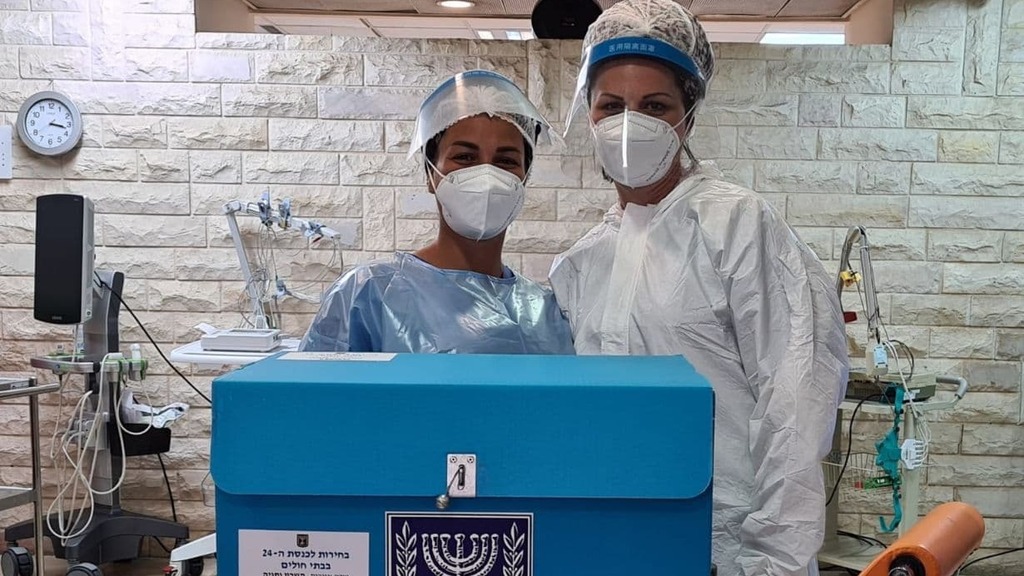

Preparing for election at Niado Hospital
(Photo: Niado Hospital Spokeswoman)
Instructions recently sent to hospitals, ahead of the vote in the corona wards, stipulated that the secretaries of the polling commission in the wards would only be vaccinated or recovering, and they would be required to be fully protected throughout the vote. The members of the polling committee will be stationed in the departmental divisions and will watch the voting process on a closed-circuit television.
The rest of the patients in the hospitals will be able to vote in the ballot box that will be placed on the spot and if they are unable to carry out the voting operation on their own, they will be able to get help from another person. Polling stations will also be set up in mental health hospitals, where there are more than 50 hospital beds, and all patients will be allowed to vote, where they will also be hospitalized in closed wards.
9 View the gallery
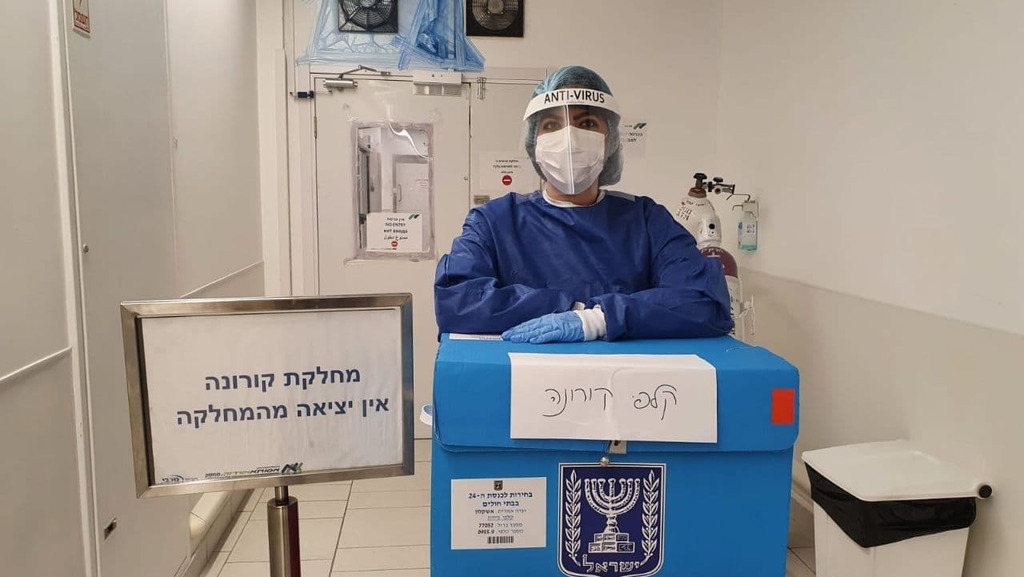

Corona cards ready for tomorrow
(Photo: Spokeswoman for Assuta Hospital in Ashdod)
9 View the gallery
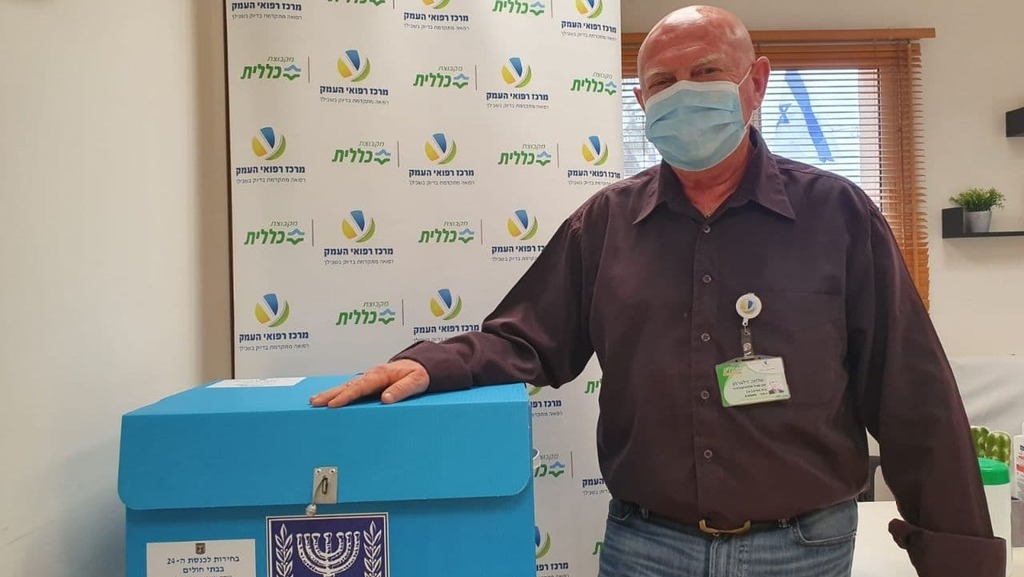

Shmulik Zilberman, who is in charge of the polling stations at Haemek Hospital
(Photo: Valley Hospital spokeswoman)
In recent weeks, hospitals have held a broader vote in the corona wards, but in the meantime dozens of wards have closed. “We were preparing to enter the corona department this year, but it was finally closed,” said Shabi Shmelo, vice president of human resources at Ichilov Hospital, which is responsible for running Election Day there.
“We still have nine patients in Corona Intensive Care and of course we give them the right to vote. We have trained a team that will be protected from head to toe, and whoever is hospitalized who can vote – will go to the polls,” he added. In light of the low numbers, this will happen over the course of an hour or two, because at the moment there is no need for more than that. “
The Prison Service has also completed its preparations for the elections to the 24th Knesset. About 8,300 prisoners and about 2,000 IPS staff members are allowed to vote in the 61 designated polling stations that will be set up in prisons across the country.
9 View the gallery
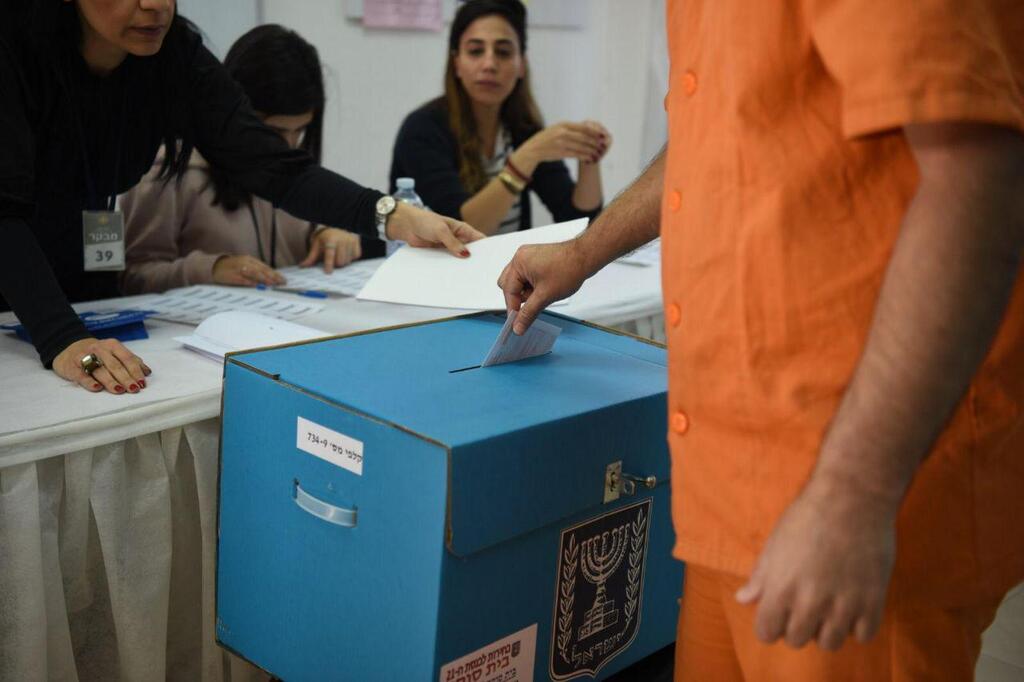

Prisoners vote in prison in previous elections
(Photo: IPS spokeswoman)
The IPS stressed that due to the corona restrictions, prisoners will leave the wards in a pre-determined order and will receive the means of identification from the wards’ wards.
Prisoners verified for Corona and those in solitary confinement after being exposed to patients will be able to vote using mobile ballots that will be brought to their ward.
Voting in prisons will take place from 8 a.m. to 8 p.m. using double envelopes, after which the ballots will be collected for the Central Election Commission. In the previous elections, held last year, the percentage of placement within the walls of prisons in Israel was about 80%.
The Ministry of Transport emphasized that passengers on those bus lines will not be required to present any document or certificate, and no age limit will apply to passengers. Also, there will be no need to validate the trip using the multi-line or one of the payment widgets.
9 View the gallery
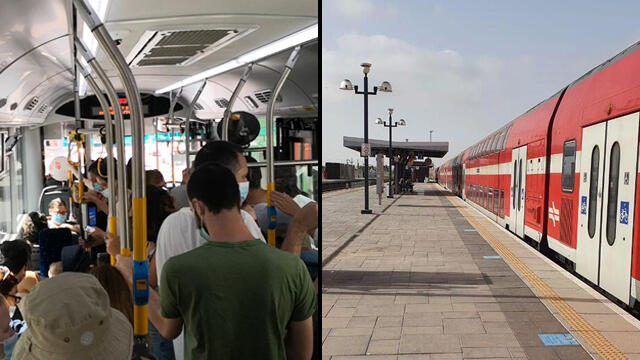

Free travel by train, paid on city lines
(Photo: Barel Ephraim)
Travel on lines not included in the hundreds of intercity bus lines, as well as travel on city bus lines and the light rail, will also be charged on Election Day.
Eligibility for a free trip to or from Eilat is approved only for Eilat residents, and is conditional on the presentation of an identity card or a notice to a voter at Egged’s ticket offices. Those passengers will be issued a round-trip ticket valid for Election Day only.
The Israel Railways decided not to open the lines that close in the early evening hours on Election Day following the work on the electrification project, in contrast to other cases in which the late trains were operated.
Passengers on the evening train and on Election Day will have to issue a dedicated travel ticket for Election Day at the station box office or at the ticket stations stationed at the station.
Meanwhile, the IDF Spokesman announced today the imposition of a general closure in the Judea and Samaria area from midnight until midnight between Tuesday and Wednesday. The crossings in the Gaza Strip will be closed during that time.
The IDF clarified that during the closure, passage will be possible only in humanitarian, medical and exceptional cases, and subject to the approval of the Government Coordinator of Operations in the Occupied Territories.

